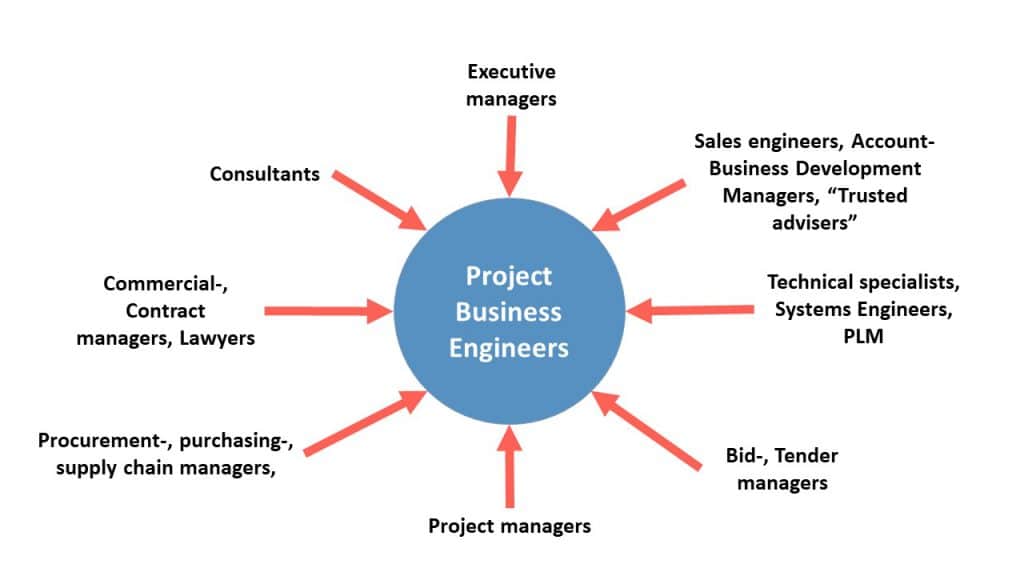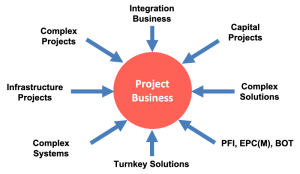Believe it or not, you will not find the definition of “Project Business” in the dictionary, no entry in Wikipedia, and Google and Amazon are of no help.
Yet, Project Business does exist and represents a significant segment of the B2B economy.
The term may appear under different colors and flavors, depending on their spheres of application. Business managers will speak of “Complex projects”, “Integration Business”, “Solution Business”, “Major / Mega Projects”, “Turnkey Projects”. Engineers might say “Large Engineered Projects”, “Infrastructure Projects”, “Critical Infrastructures“, “Complex Systems”. Investors will prefer “Capital Projects”, “Development Projects”, “Investment Projects”, “PFI”, “EPC(M)”, “BOT”, etc.
As Tsze-Lu said in the Confucian Analects: “If names of things are not properly defined, words will not correspond to facts. When words do not correspond to facts, it is impossible to improve anything.”
Let’s see then how Project Business is defined in the few rare books specifically dedicated to the topic:
- In “The business of Projects”, Davies and Hobday define Project Business as “Organizations that deploy projects to achieve major business objectives.”
- In “Business Project Management and Marketing”, by Kleinaltenkamp & Plinke, we read: “The project business is characterized by one-time product service offerings which clearly distinguish themselves from product business with respect to complexity, size, and individuality.”
What are the characteristics of Project Business?

Project Business is developed by public and/or private sectors, such as urban and industrial infrastructures, bridges, tunnels, oil & gas, IT& telecom, power & utilities, transportation, defense, construction & engineering, etc.
They create functional infrastructures that will operate and yield benefits for long periods. The figure below shows the generic life-cycle of the project business.

The stages of the project business are multidisciplinary endeavors; they require several companies working together to plan, design, purchase, and build the facility. Large ecosystems are, therefore, mobilized from contractors, sub-suppliers, integrators, consultants, financiers, lawyers, public service resources, etc.
Proposed Definitions for Project Business and Project Business Engineers
- A combination of technical-business activities is needed;
- Multiple organizations are involved;
- The project business is situated in the development phase of projects. This “preparatory” phase may be critical to lay down the right foundations of a successful project execution but at the same time, the inherent uncertainty attached to an emerging project limits the allocation of resources. Note that Project Business overlaps and extends with the initiating phase of the Project Management “sister” discipline (which effectively starts from the contract signature).
-
The definition we, therefore, use at IBS Academy for Project Business is:
"The set of business, technical, commercial activities conducted in the development phase of projects involving multiple organizations."
One important principle derives from a good understanding of this definition: the traditional antagonism between Buyers and Suppliers is a major obstacle to the consistent realization of successful projects. (Note: Adversarial culture in B2B relationships remains a deeply rooted business doctrine, stemming out of the mass- market sales practices, propagated by a profusion of sales experts and business schools). A proper approach to Project Business demands a radical shift of mindset and practices to collaborative relationships between clients and suppliers.
So, Project Business includes bringing together the right people, organizations, and resources, aligning interests to ultimately ensure the foundation for a successful project. This takes specific professional mindsets, techniques, and methods.
This brings us to the following proposed definition of Project Business Engineers: “Professionals of different competencies involved in the development phase of projects, belonging to different organizations and collaborating to set up the conditions for a successful project.”

In conclusion
The XXI century is already the era of “Super Giants” and “Terra” Projects. Small, medium, large projects businesses also multiplicate worldwide. This is driven by formidable technological developments.
There is undoubtedly also the need to drive the development of innovative forms of management, to conduct these complex projects successfully, from beginning to end.
Improvements will come from collecting, studying and integrating the experiences, good practices, and lessons learned realized in different spheres, using different names for the same concept: “Project Business”.
Some recommended references:
-
- www.ibs.academy
- Project Business Management (Best Practices and Advances in Program Management), by Oliver F. Lehmann
- https://www.majorprojectsknowledgehub.net/
- The Business of Projects: Managing Innovation in Complex Products and Systems, Andrew Davies, Michael Hobday
- Business Project Management and Marketing: Mastering Business Markets, Kleinaltenkamp, Plinke, Geiger


